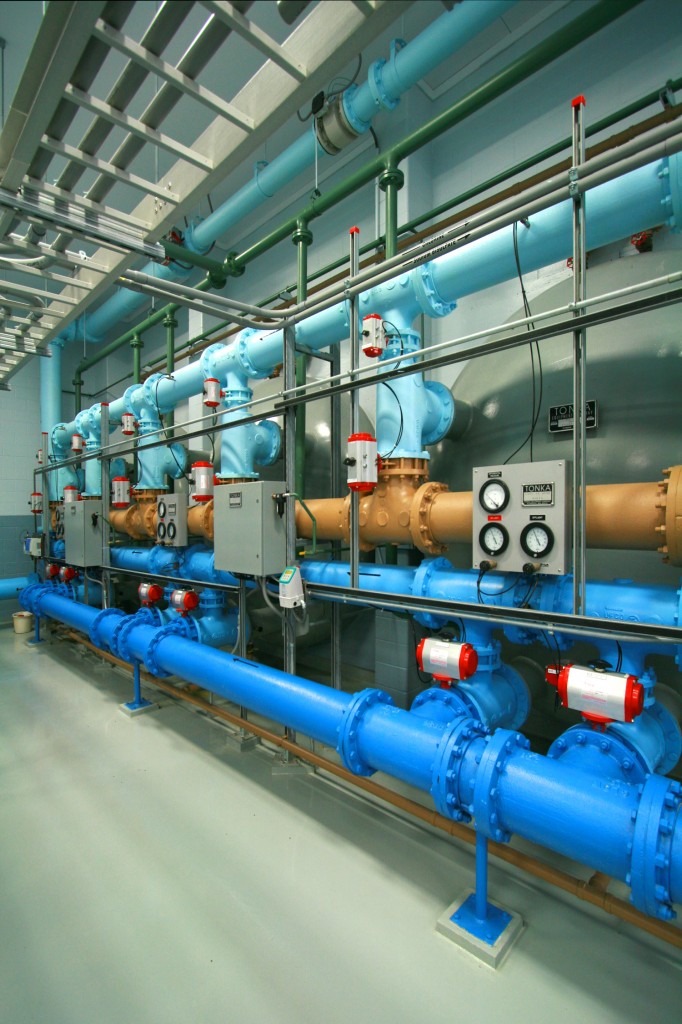Denver and the World of Water Treatment

Last week I mentioned that I would be traveling to Denver to do some work in a field I am not so familiar with. Well, I returned yesterday after what I would consider a very successful and interesting trip. The intent was to go out there and do some standard training, but as with many of these things, I ended up learning as much as I taught.
Water treatment falls under the category of “stuff” as I mentioned last week. As such, much of the control revolves around motors and valves, in this case very large ones. In the world of machine building that I am most familiar with, a large motor may be 20-50 HP or so and run on 3 phase 480 volt power. In process control and water treatment in particular, motors may be 500-1000HP or more and run at 4160 VAC! This involves much more than simply turning the motor on and off and controlling speed. Special care must be taken with current consumption, safety and power distribution.
In water treatment, electrical utilities and traffic control systems there is also a central SCADA aspect that must be accounted for. While control components are usually local to the devices and actuators being controlled, there is usually a central facility that can monitor all of the facilities in a geographic area. Generally there are operators at most facilities that monitor and control the local equipment, but in some cases the central control needs the capability of overriding a system that is far away from physical access to the facility. In the case of the facility I was at, there are parts of the water system that are over a two-hour drive away from the central office.
In addition, most of the I/O in the system is analog. This involves a lot of PID loops with analog sensors and proportional valves. For large processes, this is often done with DCS (Distributed Control System) controllers, but PLC controls were used in this case.
The engineers and technicians who operate and maintain the equipment know far more about their processes, programs and equipment than I ever will, since they deal with it every day and have for years. What they often need is training on the full capabilities of the hardware and software that is used in the system. Fortunately I am used to learning how processes operate and interpreting programming written by others. Much of the programming used in this system was written by large engineering firms that specialize in this type of equipment. Since these companies provide similar equipment to many different customers, much of the programming design uses a template style. This can be difficult to interpret; it may (or may not…) be the most efficient way to write a program from the vendor’s standpoint, but is rarely the most user-friendly method. This can make the program difficult to modify. It is also usually not very well documented since that costs extra time that the customer and vendor may not have accounted for.
This is where bringing in an outside contractor for training or integration help can be helpful long after the original system is installed. Engineers and technicians who work with a system every day are very capable of doing the work to improve a system, but they don’t always have the time required due to their other duties. They also may not be familiar with techniques that can be borrowed from other industries. That’s where I can be helpful, and I am enjoying learning new techniques as I also get to indulge my travel bug.
Are you exposed to new techniques and ways of doing things in your job?

0 Comments on “Denver and the World of Water Treatment”